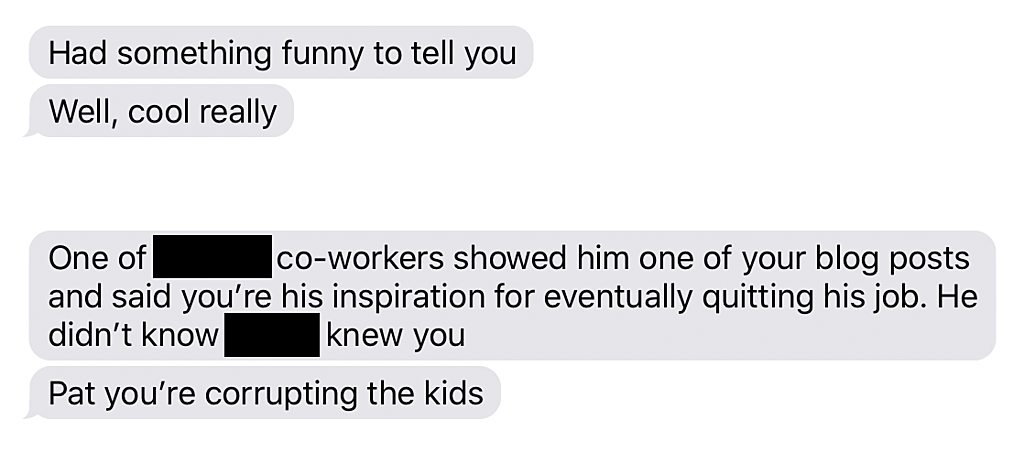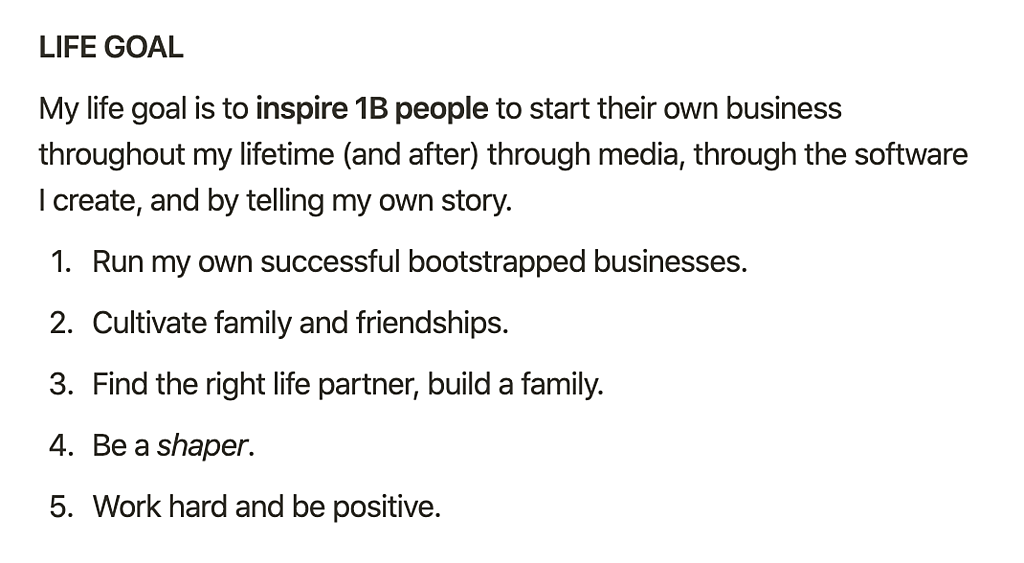May 7th, 2020
New Joe Rogan interview.
Elon Musk is *already* the greatest entrepreneur that ever lived, and he's just getting started.
What I love about Elon is that he is a company builder for life. Even after building successful companies beyond our wildest dreams, he is still building companies.
In this interview, he mocks Warren Buffet as being a bore - and alludes to his "job" being dull - staring at paperwork and deciding whether he should invest in Coke or Pepsi this year (paraphrasing).
It's true though - some people choose to work a lot less hard and make a lot more money. And that's fine.
But Elon is not interested in being an "investor", and he's not interested in being rich. He's interested in changing the world. That's why he put all his own money on the line to build his companies, years after he was already "rich".
If you ask me, that's what life is about.
Life is not about "becoming a lawyer", "getting an exit", or "making passive income like Warren Buffett". We can all get these things with relative ease before we're 30 if we wanted.
But what about after that? After you become that lawyer, doctor, or become a millionaire. What's the next challenge?
Elon's answer? Going to Mars.
Elon Musk is *already* the greatest entrepreneur that ever lived, and he's just getting started.
What I love about Elon is that he is a company builder for life. Even after building successful companies beyond our wildest dreams, he is still building companies.
In this interview, he mocks Warren Buffet as being a bore - and alludes to his "job" being dull - staring at paperwork and deciding whether he should invest in Coke or Pepsi this year (paraphrasing).
It's true though - some people choose to work a lot less hard and make a lot more money. And that's fine.
But Elon is not interested in being an "investor", and he's not interested in being rich. He's interested in changing the world. That's why he put all his own money on the line to build his companies, years after he was already "rich".
If you ask me, that's what life is about.
Life is not about "becoming a lawyer", "getting an exit", or "making passive income like Warren Buffett". We can all get these things with relative ease before we're 30 if we wanted.
But what about after that? After you become that lawyer, doctor, or become a millionaire. What's the next challenge?
Elon's answer? Going to Mars.

